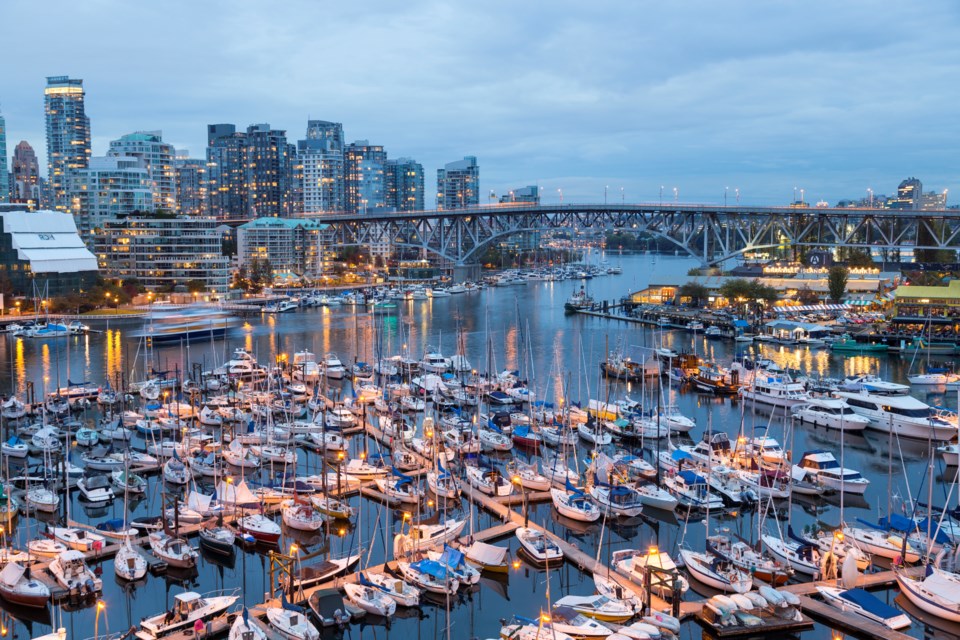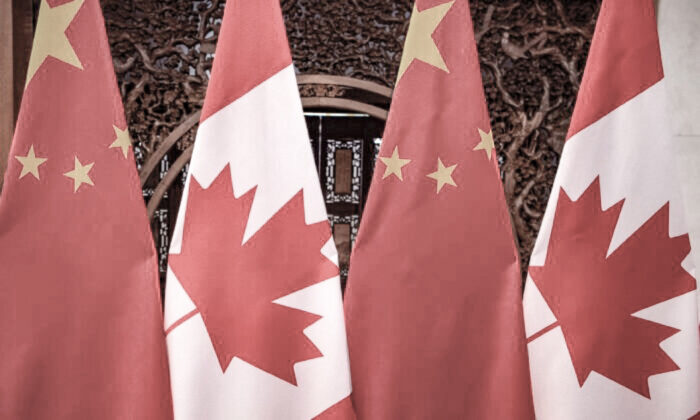Port of Vancouver gears up to build $3.5-billion container terminal To Service China

The Port of Vancouver is gearing up to build a $3.5-billion container terminal that it believes will be an economic and engineering marvel, while critics warn of environmental harm.
Last week, the federal government approved the Vancouver Fraser Port Authority’s contentious plans for the Roberts Bank Terminal 2, or RBT2. Upon completion of RBT2, container capacity would rise by nearly 50 per cent at Canada’s largest port.
Port authority president Robin Silvester said the Canadian economy will prosper from the new terminal. “It’s critical to have capacity and have a competitive export gateway,” he said in an interview.
RBT2 will require construction of an artificial island near Delta, B.C., located about 30 kilometres south of Vancouver.
The port is also touting RBT2 as a crucial expansion of shipping-container capacity to meet an anticipated jump in imports of consumer goods from China, Japan, South Korea and other parts of Asia.
“It’s so important to have capacity in this gateway, to preserve affordability for Canadians for those goods that we depend on being brought to us from around the world,” Mr. Silvester said.
The project underwent a decade-long environmental review process led by the Impact Assessment Agency of Canada, before gaining last week’s approval from the federal government. The port, which started public consultations in 2011, is pleased to finally get the green light.
“It has been a long time coming, but we’re obviously delighted,” Mr. Silvester said.
The port must still obtain various permits from federal departments, including Fisheries and Oceans, as well as Environment and Climate Change Canada. The painstaking steps of preliminary work are expected to take about three years, including attracting a terminal operator, before construction even begins.
The port estimates 3,000 direct and indirect jobs will be created during more than six years of construction and then at least 800 full-time jobs at the new terminal once it’s up and running. Union leaders are opposed to RBT2, saying they’re worried about the magnitude of automation during operations.
Roger Emsley, executive director of the Against Port Expansion community group, said he is disappointed by the federal approval of plans for RBT2′s three-berth container terminal. RBT2 will trigger a decline in mudflat biofilms, a critical food source for migratory and other shorebirds, including western sandpipers, he said.
“The fight to save the Fraser estuary and Roberts Bank from environmental degradation is by no means over,” Mr. Emsley said in an e-mail.
The shipping industry deploys large vessels to carry containers, which are reusable steel boxes measured as 20-foot equivalent units, or TEUs. The cargo shipped in the containers include imported goods from Asia and exports of Canadian raw materials such as grain.
Critics say the Vancouver port’s RBT2 plans are too costly. They point out that the Port of Prince Rupert in northern British Columbia has its own vision to expand container capacity by two million TEUs a year by the early 2030s, more than doubling existing capacity at that port.
The first phase of RBT2 is designed to add 1.6 million TEUs a year by 2033, then 800,000 TEUs a year in a second phase to be finished by 2036. When RBT2 is fully completed, the additional capacity from the new terminal would represent a 34-per-cent increase compared with today’s combined capacity at the Port of Vancouver and the Port of Prince Rupert.
Environmental groups are slamming the federal government for giving the go-ahead to the project, including criticisms from the David Suzuki Foundation, Ecojustice, Georgia Strait Alliance, Wilderness Committee and Raincoast Conservation Foundation.
Misty MacDuffee, Raincoast’s wild salmon program director, said endangered southern resident killer whales should be protected, but RBT2 will be harmful to them. “It increases threats, worsens their feeding conditions and increases their likelihood of extinction,” she said in a statement.
During a news conference last Thursday, Natural Resources Minister Jonathan Wilkinson emphasized that the federal government’s project approval is subject to 370 legally binding conditions.
“Salmon, whales, western sandpipers, and the biofilm that sustains them – I have spent many years of my life fighting for more sustainable and healthy oceans,” Mr. Wilkinson said.
He said the port authority has reached impact benefit agreements with 26 Indigenous groups consenting to the project, including the Musqueam Indian Band and Tsawwassen First Nation.
One of the port authority’s tenants, GCT Global Container Terminals Inc., runs the existing site near Delta. GCT wants to expand its three-berth Deltaport terminal and opposes its landlord’s plans to build the artificial island that would be located near GCT’s site and Westshore Terminals Investment Corp.’s coal-export facility.
Under GCT’s rival Deltaport 4 plans to construct a fourth berth, the company is proposing to add two million TEUs a year to increase its annual capacity to 4.4 million TEUs by the early 2030s.
Marko Dekovic, GCT vice-president of public affairs, said RBT2′s plans to construct the artificial island are counterproductive. “RBT2 will be the world’s most expensive container terminal expansion project. It has no terminal operator in place, and it creates environmental impacts that Environment and Climate Change Canada concluded are unmitigable,” Mr. Dekovic said in an e-mail.
At the Port of Vancouver, GCT runs the Deltaport and Vanterm container terminals, while DP World PLC operates the Centerm container terminal and the multipurpose Fraser Surrey Docks.
The port authority reports to Transport Minister Omar Alghabra.
Earlier this year, Conservative Leader Pierre Poilievre claimed that Prime Minister Justin Trudeau’s Liberal government has been slow in handling the port file.
“Let’s make Vancouver one of the best ports on planet Earth. Right now, it’s poorly ranked,” Mr. Poilievre said.
He cited the Container Port Performance Index for 2021, compiled by the World Bank and S&P Global Market Intelligence. The administrative index placed Vancouver third-last in the rankings that factor in operating efficiency and turnaround times at 370 ports. Long Beach, Calif., placed second-last and Los Angeles was at the bottom.
Mr. Silvester said Vancouver’s 368th spot was a “snapshot in time” that reflected shipping congestion amid a surge in demand from consumers for imported goods during the COVID-19 pandemic. There were conditions in 2021 out of the port authority’s control such as clogged rail lines after extreme weather in British Columbia and continuing disruptions to the supply chain overseas, but RBT2 will play an important role to alleviate future bottlenecks, he said.
“This is a project that helps us move back up the rankings to where we should be,” Mr. Silvester said.



![Lu Jianshun, chairman of America Changle where the overseas Chinese police station is allegedly located, donated to Mayor Eric Adams mayoral campaign. [Youtube/Screenshot/eStarTV第一直播]](https://cdn01.dailycaller.com/wp-content/uploads/2023/01/Screen-Shot-2022-10-18-at-7.50.18-AM-e1673620727997.png)






























